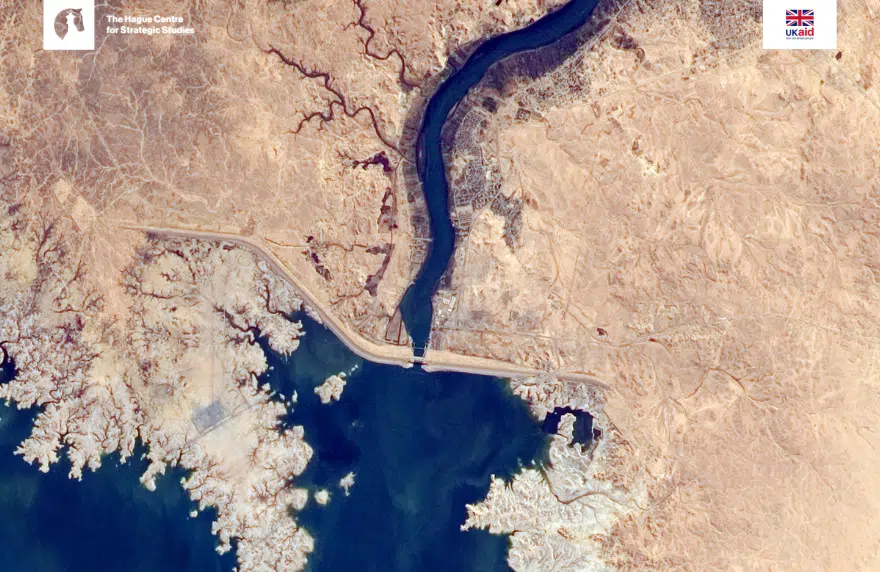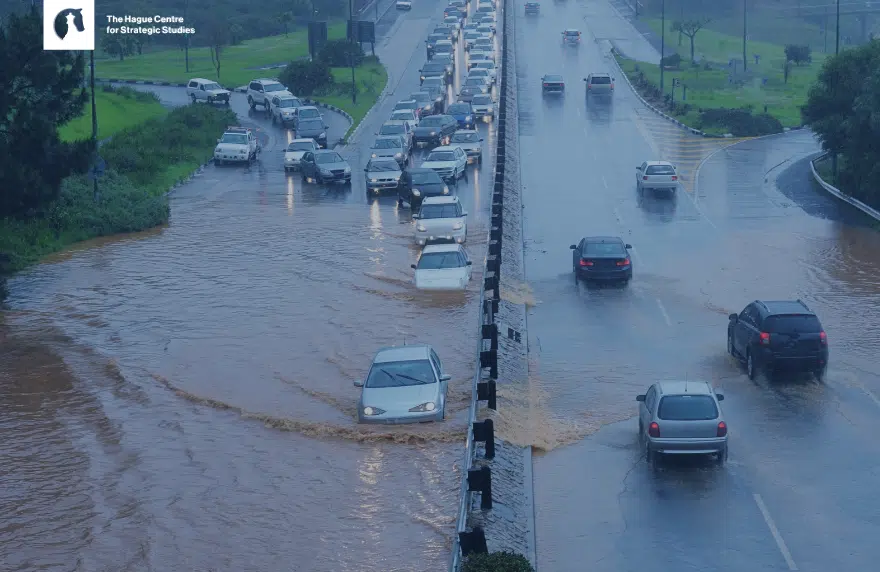A new monitor has for the first time modeled the economic impact of climate change together with conflict risk with startling results. The monitor and accompanying report, the Economics of Planetary Security: Climate Change as an Economic Conflict Factor, was produced by The Hague Centre for Strategic Studies (HCSS) and Clingendael Institute, as a key input to the Planetary Security Initiative conference, taking place in The Hague, the Netherlands on December 5 and 6 supported by the Dutch Ministry of Foreign Affairs.
The monitor is innovative in its inclusion of security risks related to the transition to a low carbon economy, a topic of increasing concern for financial investors and conflict analysts, according to Louise van Schaik of the Clingendael Institute, a co-author of the report and Project Manager of the Planetary Security Initiative.
Michel Rademaker, Deputy Director of HCSS, said the monitor assessed Conflict Vulnerability, Climate Change Vulnerability, Low Carbon Risk and Economic Resilience to produce an aggregate resilience indicator. Ultimately, this monitor shows how resilience to the above vulnerabilities could be bolstered.
With the report, the institutions sought to uncover what it is that makes some countries resilient and to ask whether we can introduce these factors to other countries to help protect people from worsening impacts. In this way, the monitor goes beyond listing the most vulnerable and most resilient economies. For example, countries which are highly reliant on carbon intensive industries score poorly in the Low Carbon Risk indicator, with Australia, Russia and Iran among the most vulnerable. On the other hand, despite the other challenges it faces, Rwanda is found to be resilient to environmental challenges, while Somalia is not.
The monitor would track performance over time and be expanded to include more and richer indicators, seeking to show that countries can be vulnerable to climate change in a range of ways that go beyond the crippling cost of climate change induced natural disasters. Overall, the aggregate monitor shows that the most vulnerable countries are in the Middle East and North Africa, which the report attributes to the oversized role conflict plays in driving vulnerability. As a result, it calls for peacemaking efforts quickly followed by plans for the economic diversification of countries towards low carbon industries which in turn can drive development.






